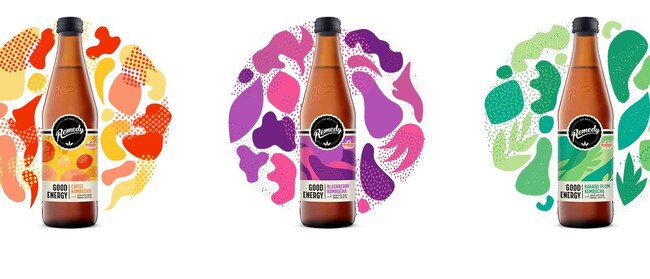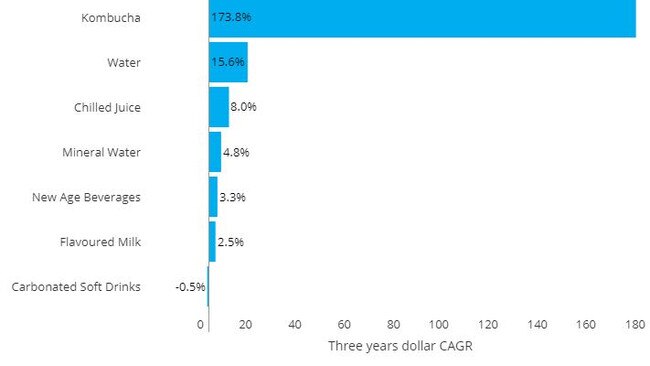Remedy Kombucha launches energy drink alternative to Red Bull, Mother and V
As the kombucha guzzling trend continues to skyrocket in Australia, a Melbourne brand has dropped a new player in the energy drinks market. Here’s how it stacks up healthwise.
Health
Don't miss out on the headlines from Health. Followed categories will be added to My News.
An Australian kombucha brand is continuing to shake up the fizzy drinks aisle, turning its focus to energy drinks but does their offering compare healthwise to the likes of Red Bull, V and Mother?
From today, Melbourne born Remedy Kombucha has launched — Good Energy — to tackle the sugar and caffeine saturated energy drink market.
Remedy’s offering is all-natural and no sugar and is said to be the world’s first kombucha-based energy drink.
A Remedy spokesman said their research had found while many Australian millenials were switching to kombucha as a soft drink alternative, 62 per cent of young people were still consuming energy drinks regularly in addition to kombucha.
Nutrition Australia Dietician Aloysa Hourigan told News Corp Australia that Remedy’s drink is better on waistlines than the big energy drink contenders, however it did prose a caffeine risk.
Coke-bucha? Coca-Cola buys Australian kombucha
Mindful drinking: ‘Healthy booze’ trend skyrocketing
SA kombucha producer Mojo upsizes
“If you’re trying to watch weight and decrease your sugar intake it is a good option,” she said.

“The calories are certainly not as high (as Red Bull) but it’s got other additives in it (such as sweeteners).”
One thing Ms Hourigan noted was that Good Energy Coffee contained far higher caffeine than Red Bull (more than 99mg in a 330ml serve).
Remedy’s two other flavours — BlackBerry and Kakadu Plum — contain 80mg per 330ml which is about the same as a Red Bull.
“It’s OK to have one drink like that a day, a strong cup of coffee will give you about 80mg of caffeine,” she said.
She pointed out that the recommended max intake for caffeine is 400mg a day and far less for caffeine sensitive people.
“If you have two a day and you’re caffeine sensitive you may experience an increased heart rate and increased anxiety,” she said.
Ms Hourigan felt the healthiest kombucha was made at home without additives, however she said Good Energy was “certainly not unhealthy.”
“Just be mindful of the caffeine but as an occasional drink, even once a day won’t hurt you,” she said.

Remedy co-founder Emmet Condon said Good Energy contains all the benefits of kombucha such as live cultures, organic acids and antioxidants as well as raw green coffee bean extract, green tea and ginseng.
“Until now, there hasn’t really been a healthy, tasty alternative to traditional energy drinks.
Remedy Good Energy is a market first and one we think people will jump on-board with
having already been bitten by the Remedy booch bug,” he said.
Kombucha’s rise in prominence on supermarket shelves is no accident.
According to Nielsen consumer trends data, Australians are switching to perceived healthier drinks. While soft drink sales are on the decline, kombucha sales have grown seven times in the last two years, pinpointing a sweet spot in the market.
Originally published as Remedy Kombucha launches energy drink alternative to Red Bull, Mother and V


